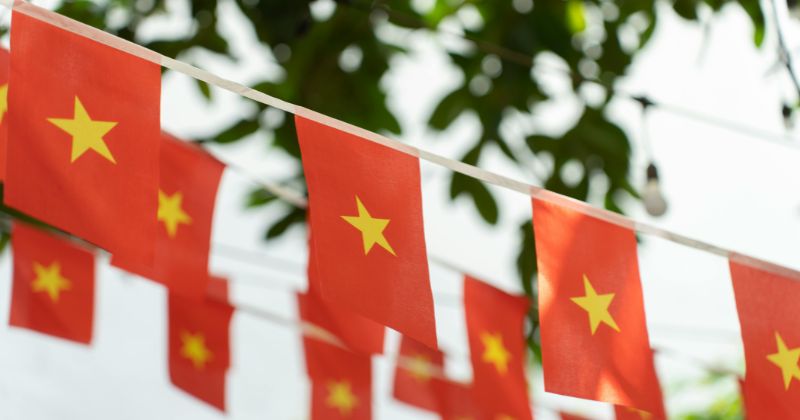Thai Business law update : Nominee Shareholders in 2025
- Date: October 21, 2025
In 2025, Thailand’s regulatory and law-enforcement agencies have escalated efforts to crack down on the use of nominee shareholders.

In 2025, Thailand’s regulatory and law-enforcement agencies have escalated efforts to crack down on the use of nominee shareholders. What was once a tolerated or overlooked practice is now under intense scrutiny, particularly in high-risk industries such as real estate, tourism, hospitality, and villa development. Foreign investors relying on Thai nominees as “fronts” must beware: the legal and financial risks are rising sharply.
What are Nominee Shareholders?
Foreign investors often consider using Thai nationals or Thai entities as nominee shareholders — i.e. individuals or companies who hold shares in name only while the true control, benefits, and decision-rights remain with a foreign party.
General motive is to circumvent the restrictions under the Foreign Business Act (FBA), which imposes limits on foreign ownership (often capping foreign shareholding at less than 50% in many business sectors) unless a Foreign Business License (FBL) or other permission is obtained. Another common purpose is land ownership: since the Land Code prohibits foreigners from owning land directly (with few exceptions), some foreign investors attempt to use a Thai nominee as majority or full shareholder in a land-holding company, so that nominal ownership stays in Thai hands.
Because of these constraints, many foreigners attempt to structure arrangements where Thai nominee shareholders hold shares officially, while all dividends, operational control, and rights of decision are effectively diverted to the foreign beneficial owner.
Is It Legal to Use Nominee Shareholders?
No — nominee shareholding is illegal under Thai law.
Below are the main legal bases and recent enforcement developments:
Key Legal Provisions & Penalties
- Foreign Business Act (Section 36)
- Prohibits use of nominees to bypass foreign ownership restrictions.
- Penalties: up to 3 years’ imprisonment, fines from THB 100,000–1,000,000, and possible company dissolution or forced divestment.
- Land Code (section 86)
- Transfers or arrangements indirectly allowing foreign land ownership are void.
- Civil and Commercial Code (Section 150)
- Contracts with an unlawful purpose, such as avoiding ownership limits, are void and unenforceable.
Recent Cases & Enforcement Moves
In September 2024, the Department of Special Investigation (DSI) investigated a company offering corporate registration and accounting services that facilitated foreign ownership through Thai nominees (violating the FBA). The Criminal Court subsequently sentenced 23 defendants (Thai and foreign) to 5 years’ imprisonment (suspended 2 years). Evaluations reveal that in 2024, over 26,000 companies were under review by the DBD for possible nominee arrangements, especially in tourism, real estate, hotels, logistics, etc.
In 2025, the DBD is now actively issuing formal notices to shareholders and directors, demanding proof that Thai shareholders are legitimate (not nominees). Authorities are also focusing on villa schemes in Koh Samui and Koh Phangan, targeting foreign-controlled villas operated via Thai nominees. In October 2025, the National Police launched a crackdown on nominee companies in the islands.
The Thai Cabinet reviewed a report by the Ombudsman on nominee landholding in June 2025, and directed multi-agency cooperation to strengthen enforcement.
What Do Authorities Want to See / Evidence They Demand?
In many ongoing investigations or compliance checks, authorities request or demand the following documents and proofs:
- Shareholders’ registration book and minutes of shareholders’ meetings
- Share certificates (or certificates of shares) to demonstrate legal title
- Accounting and tax filings (corporate tax returns, audited financial statements) for the past 2 years
- Proof of share payments (e.g. bank transfer slips, ledger entries) to show Thai shareholders actually paid consideration
- Dividend payment records, if any, since incorporation
- Deeds or lease agreements related to real estate held by the company
- Any loan agreements, side contracts, or guarantees linking the Thai “nominee” shareholder to the foreign beneficial owner
Authorities are now cross-checking ownership, money flow, control, and actual benefits. Having documents in order tend to be no longer sufficient – what truly concern is who genuinely controls the company and receives its profits.
What are the Legitimate Options (Instead of Nominee Structures)?
Given the rising risk, foreign investors should consider legal and transparent structures:
- Avoid nominee structures entirely.
It is advised that all share transfers, capital contributions, and dividend contributions are properly documented. Thai shareholders (if any) should genuinely invest capital and hold legitimate economic interest.
- Acquired Foreign Business License (FBL)
In limited cases, a foreign investor may apply to the relevant authority for a license under FBA to engage in restricted activities. However, in practice FBLs are rarely granted and the process is stringent.
- Incentive schemes / special laws
- BOI (Board of Investment): some BOI-promoted projects allow 100% foreign ownership or relax some restrictions, along with incentives (tax breaks, land rights, etc.).
- IEAT / EEC zones: in some industrial estates or economic zones, rules may allow more favorable foreign ownership.
- Treaty of Amity (for U.S. investors): U.S. citizens may benefit from special rights to own majority under the Thailand–U.S. Treaty of Amity (in sectors where the treaty applies).
- Joint ventures / partnerships with genuine Thai partners
- Engage Thai shareholders or partners who contribute capital and actively participate
- Ensure that control, economics, and governance reflect a real partnership
- Proper legal documentation (shareholders’ agreements, articles, corporate governance) to clarify rights and obligations.
Conclusion
Thailand is entering an era of strict enforcement against nominee shareholding. The DBD, DSI, and police are coordinating investigations and issuing formal compliance notices. Foreign investors should act proactively and ensure compliance with the applicable laws, especially the FBA and Land Code. Nominee arrangements are now carrying real criminal exposure. Legal, transparent structures are the only sustainable path forward for doing business in Thailand.
Disclaimer:
The information provided in this article is for general informational purposes only and does not constitute legal advice, or attorney-client relationship. Readers shall not be relied upon as a substitute for professional consultation or as a definitive source of law. Regulations and enforcement practices may change over time. Clients and readers are strongly advised to consult with our lawyers for case-specific advice before taking any action based on the information herein.
Share this article
Inquiry Box
Request a Consultation. We'll respond within 12 hours.
Related Articles
Australia Introduces the National Innovation Visa (NIV): A New Pathway for Exceptional Talent
As of 6 December 2024, the Australian Government unveiled a major reform in its migration policy by launching the National...
Read MoreNon-Compete & Non-Disclosure Agreements in Vietnam: What Foreign Investors need to Know
Vietnam has become a key destination for foreign investment in manufacturing, services and technology.
Read MoreFriedland Law Partner Thomas Wong on The Golden Quarter Show: U.S. Families Looking Abroad and the Rise of Asia
As global mobility continues to evolve, more American families are exploring opportunities beyond their borders
Read More


